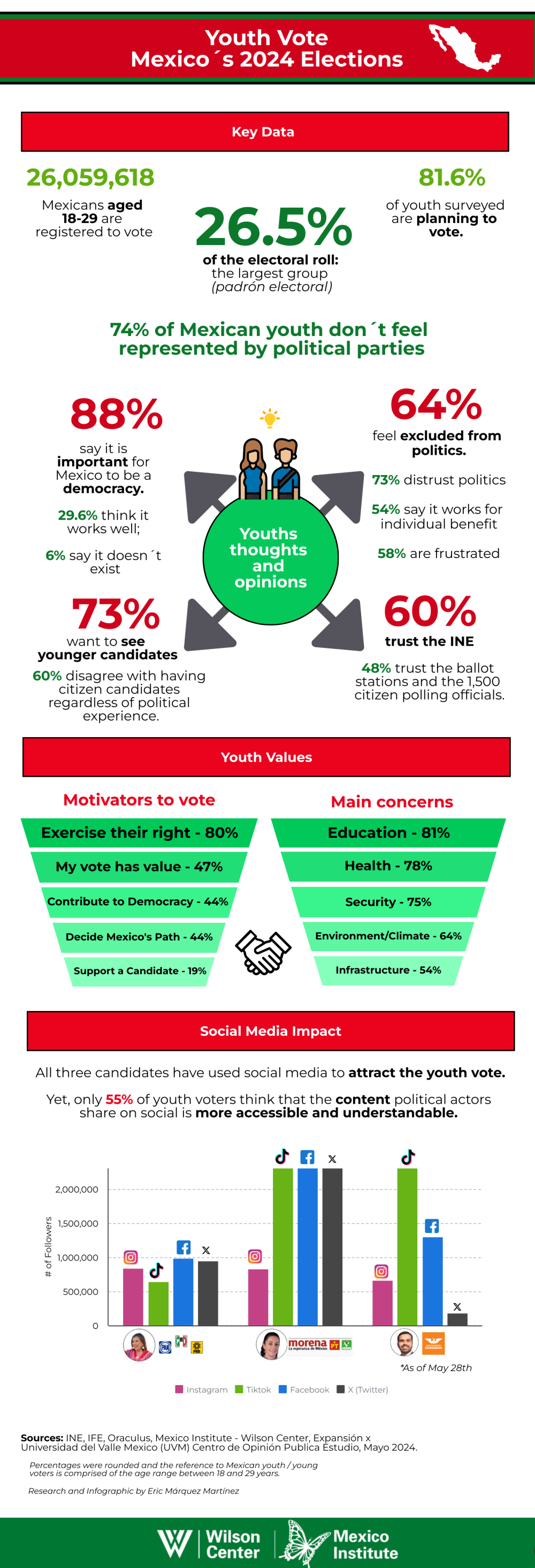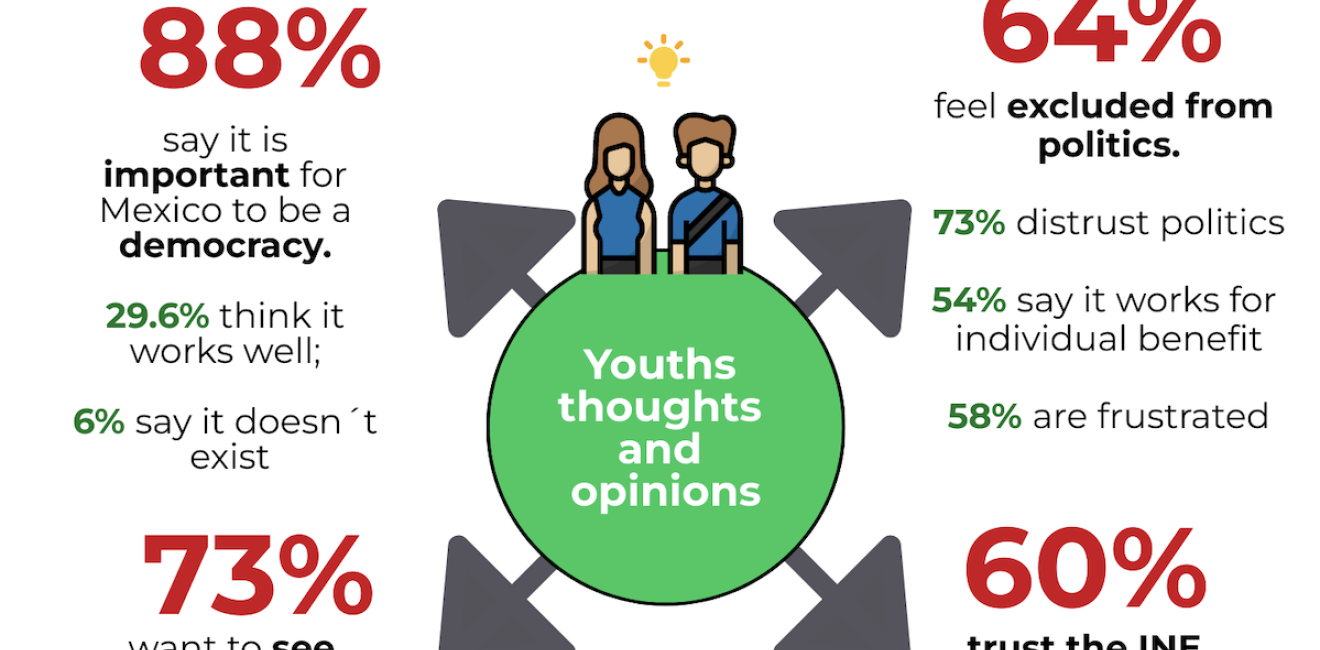
Every general election, the number of registered voters in Mexico increases, especially youth voters under the age of 30. These youth voters will make up 26.5% of the entire electorate, making them the largest group of voters. In a nationwide survey conducted by Expansión and the Universidad del Valle Mexico (UVM) Centro de Opinión Publica1557 youths from across the country were asked various questions regarding Mexico’s electoral and political processes. When asked if they planned on voting in the June 2024 elections, 81.6% of respondents said yes.
When responding to questions about their beliefs and motivations regarding the current state of Mexico, the youth showed frustration. Lack of employment opportunities, low income, low social mobility, violence, and uncertainty about climate change are key stressors in the lives of Mexican youth. As they look up to the elected officials who are meant to be improving their lives and ensuring Mexico’s success, they feel “disappointed,” “excluded,” and “lied to.” With growing transparency surrounding political processes in Mexico, the youth are beginning to see right through corruption and ascension to power for personal benefit. When asked, 88% of youth said it is important to them that Mexico be a democratic country, yet their trust in electoral processes, democratic institutions, and elected officials is shown to be, at best, indifferent.
This is precisely why a movement is gaining traction with these young voters. Political analysts and academics continue to express confusion and concern over Jorge Alvarez Máynez’s growing share of the votes. However, when you consider that 73.3% of youth agree that they desire to see younger candidates, it should be no surprise that Máynez’s social media presence among youth is growing along with an increasing belief that Movimiento Ciudadano does indeed represent the youth.
If there was doubt that Máynez has no strong advantage with young voters, the Simulacro Electoral Universitario, or university mock elections, have him in second place, winning 23.1% of the vote. Claudia Sheinbaum received 63.5% of the vote, and Xóchitl received only 8.5% of the vote. This is a far cry from the national polls, which have underestimated the sheer scale of the youth vote. While many adults and political pundits see Máynez’s increasing popularity as a detriment to either of the female candidates, young voters in Mexico see it as their statement to move away from political attitudes of the past.
Whatever the result on June 2, the youth in Mexico must not miss the opportunity to have their voices heard. Not only that, going forward, they expect to be more welcomed and involved in legislative processes, cabinet teams, and executive decisions.
Authors



Mexico Institute
The Mexico Institute seeks to improve understanding, communication, and cooperation between Mexico and the United States by promoting original research, encouraging public discussion, and proposing policy options for enhancing the bilateral relationship. A binational Advisory Board, chaired by Luis Téllez and Earl Anthony Wayne, oversees the work of the Mexico Institute. Read more

Explore More
Browse Insights & Analysis
The Future of France's Far-Right Party

Ukrainian Issue in Polish Elections

Canada's 2025 Election: A Referendum on US-Canadian Relations



